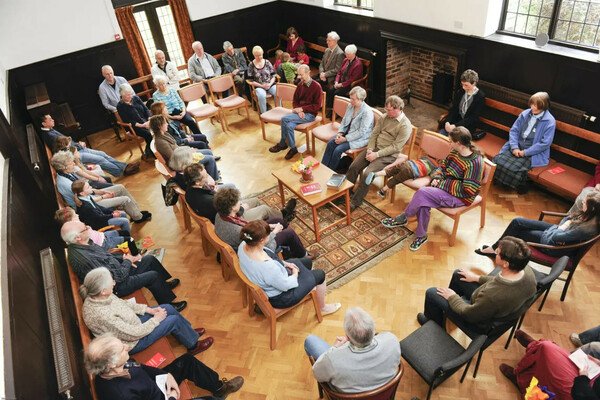How Quakers Approach Decision-Making in Practice
In a Quaker meeting, decision-making is a spiritual practice that goes beyond the practicalities of reaching a conclusion. It’s a process of discernment, where participants seek not just agreement but alignment with spiritual truth. Each individual plays a role in ensuring that decisions reflect the core Quaker principles of equality, peace, and integrity.
Entering a Meeting with Openness
When attending a Meeting for Worship for Business, Quakers arrive with an open heart and mind. This is crucial because Quaker decision-making isn’t about pushing one’s agenda but about being receptive to divine guidance. Participants must be willing to set aside personal biases and truly listen to what is shared.
In practice, this means that even if someone enters the meeting with a firm opinion, they must remain open to the possibility that the discernment process will reveal something different. For many, this is a humbling experience, requiring patience and trust in the process.
The Role of Silent Reflection
A key part of Quaker decision-making is the use of silent reflection. After someone offers vocal ministry, the meeting returns to silence, allowing the group to consider what was shared. This reflection is vital as it helps each person discern whether the contribution resonates with their own sense of spiritual truth.
In practice, Quakers are encouraged not to rush into speaking. Silence is a powerful tool that allows space for insights to deepen and mature before further vocal ministry is shared.
Contributing with Integrity
When participants feel led to speak, they do so with great care. Vocal ministry is not about debate or argument; it’s a spiritual offering. When someone speaks, they are expected to be honest, sincere, and aligned with their sense of divine guidance. This requires discernment on an individual level—participants only contribute when they feel genuinely moved by the Spirit.
Listening Deeply
Equally important in the Quaker decision-making process is the act of deep listening. Every contribution is treated with respect and listened to attentively. This deep listening allows participants to hear beyond the words themselves and connect with the spiritual insights being shared.
Listening deeply is a key practical behaviour in Quaker decision-making because it helps create a space where each voice can be heard, and spiritual guidance can emerge.
Reaching the Sense of the Meeting
The ultimate goal of a Quaker meeting is to reach the sense of the meeting, a shared understanding of what feels spiritually right. This is not about consensus or majority rule; instead, it’s about aligning with a collective sense of truth. When the group feels that this sense has emerged, the Clerk records the decision as a minute, and the meeting moves forward.
Patience and Trust in the Process
Quaker decision-making requires patience. There is no set time for how long it will take to reach unity, and meetings may revisit issues multiple times before a decision is made. This patience reflects a deep trust in the discernment process and the belief that, given time, the right path will emerge.
Practical Impacts on Decision-Making Behaviour
In practical terms, Quaker decision-making fosters behaviours that focus on humility, openness, and spiritual reflection. Whether in a small Clearness Committee or a larger business meeting, individuals are encouraged to prioritize the group’s spiritual alignment over their own personal preferences. This ensures that decisions are made with integrity, care, and a commitment to Quaker values.



